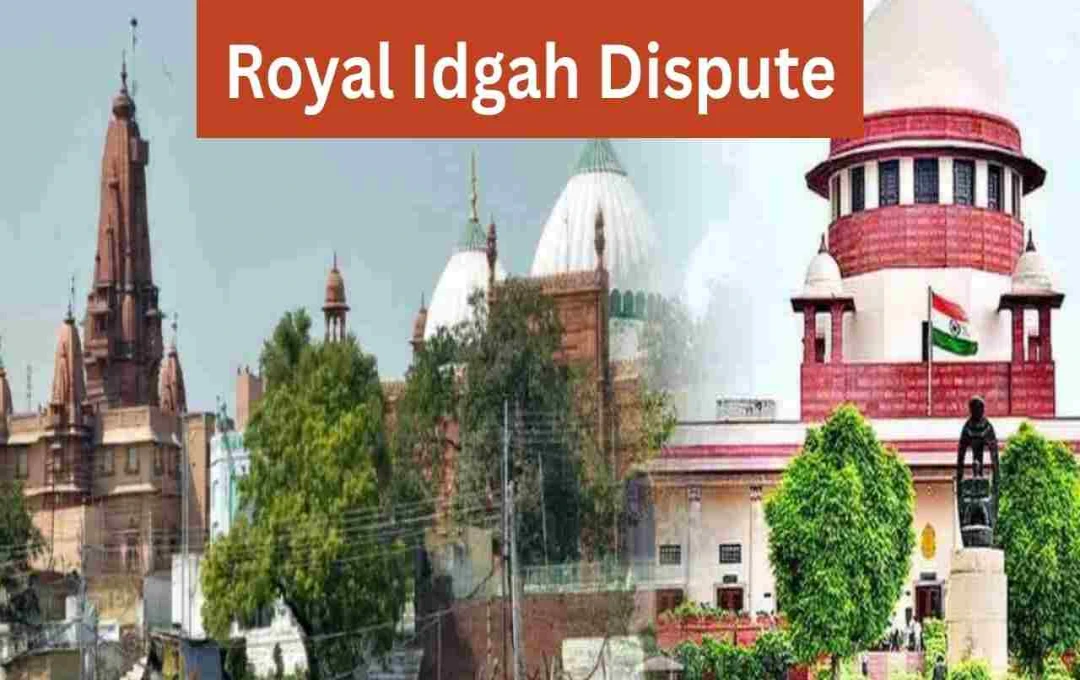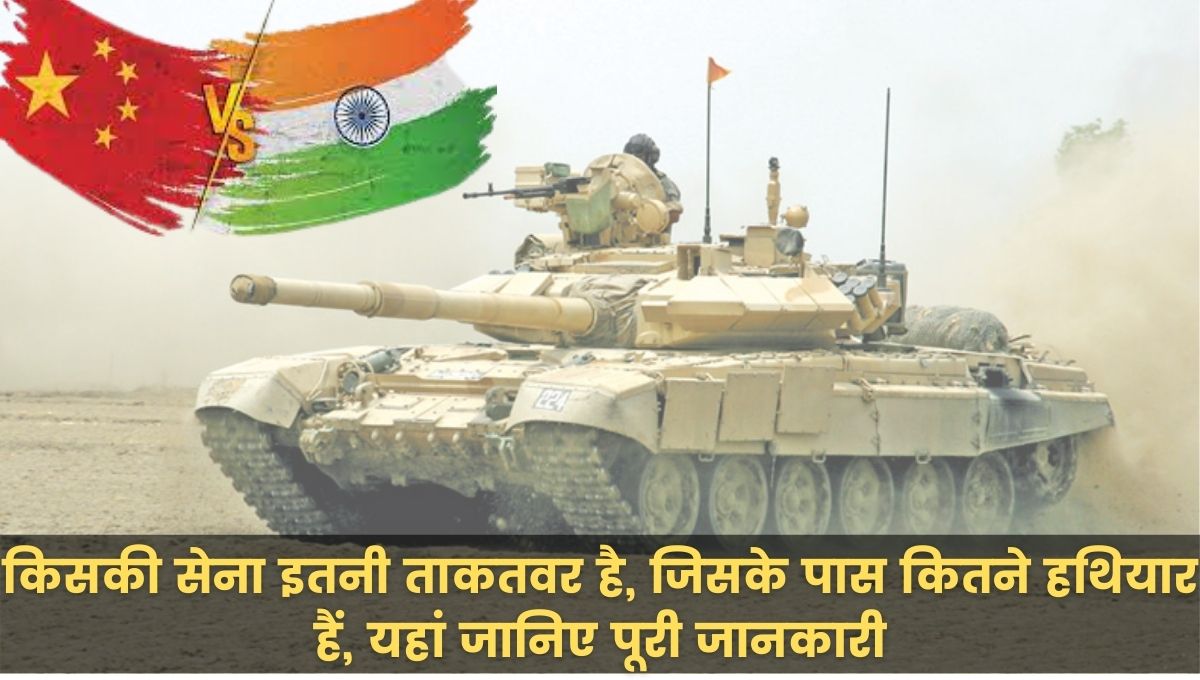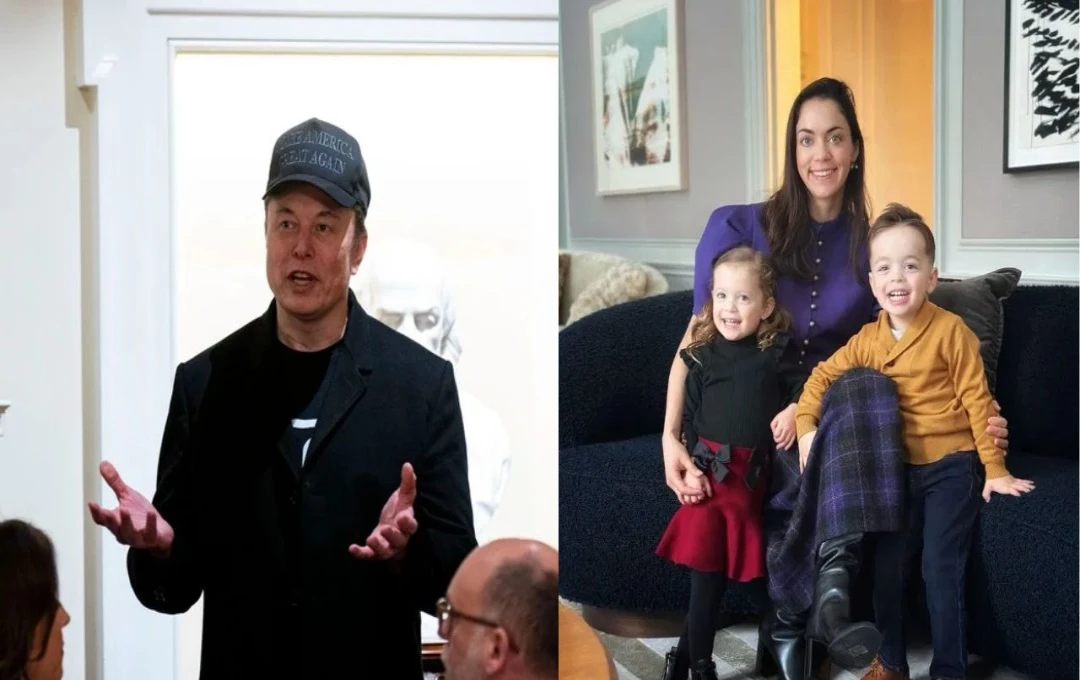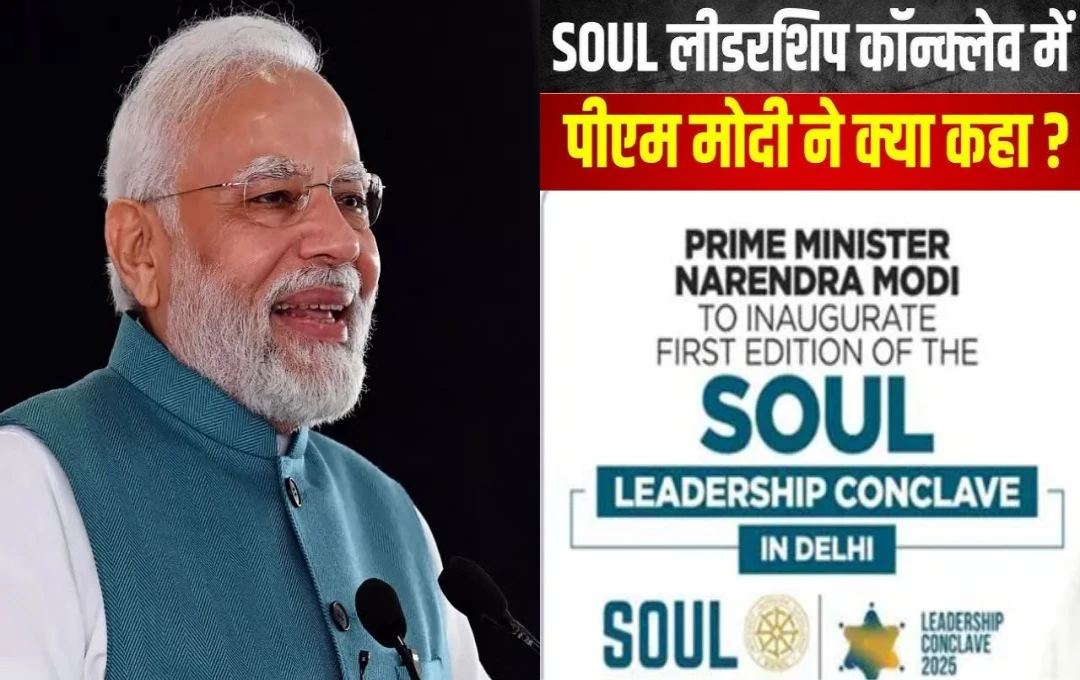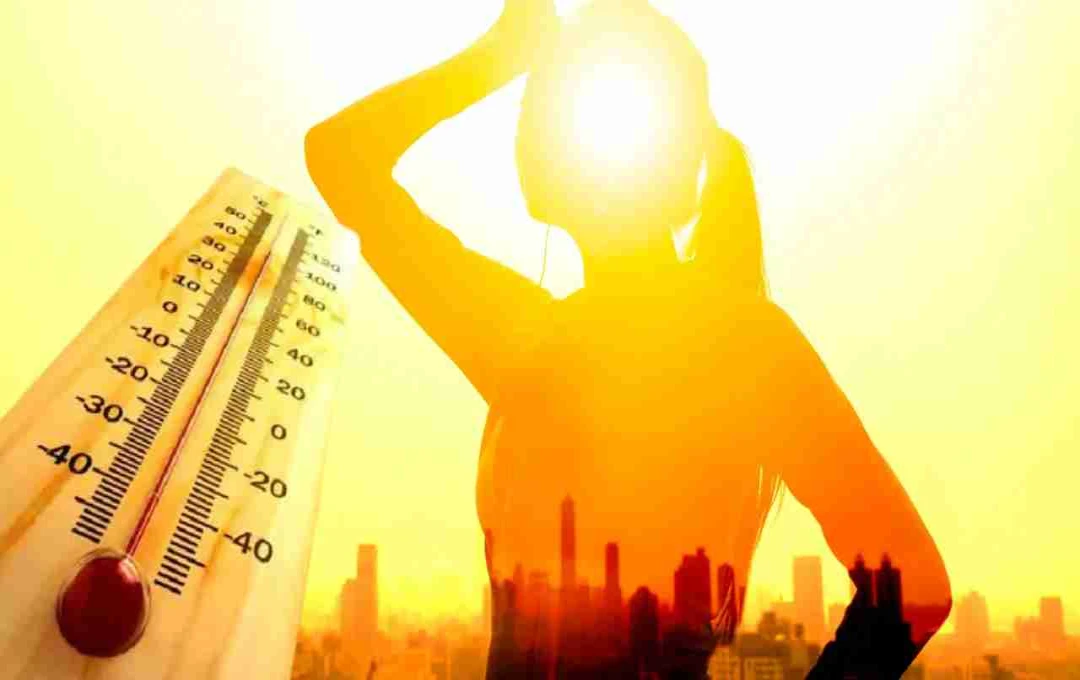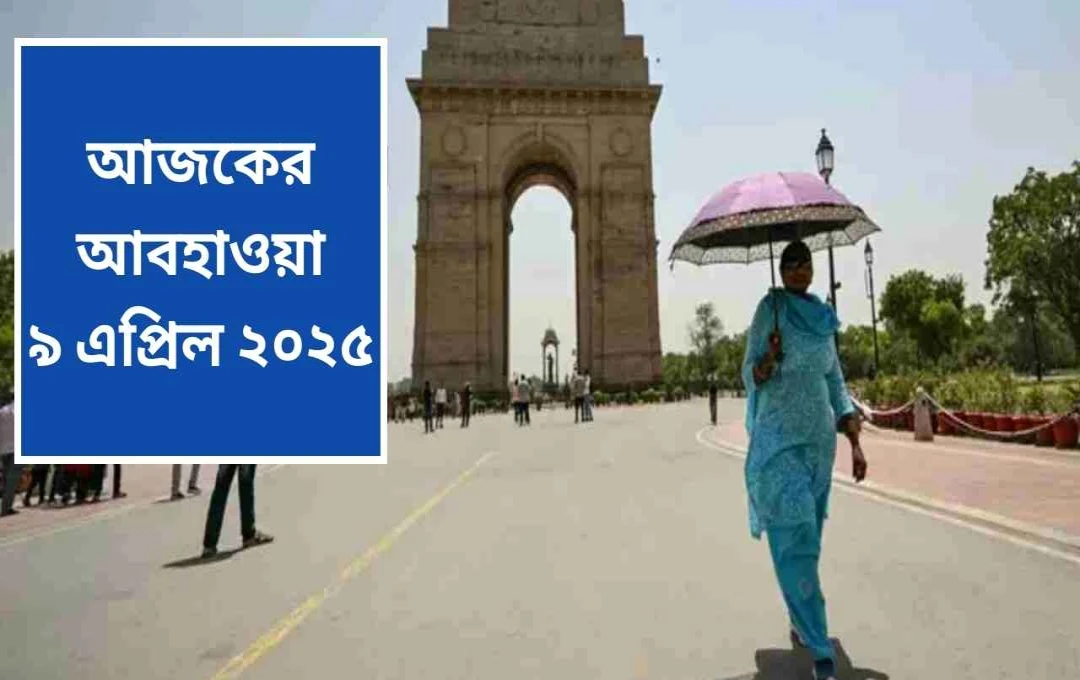The Supreme Court on Friday agreed to examine the opposing arguments of Hindu and Muslim parties regarding the applicability of the Places of Worship (Special Provisions) Act, 1991, in the crucial Mathura Shahi Eidgah-Shri Krishna Janmasthan dispute.
New Delhi: The most crucial question in the Mathura Shahi Eidgah-Shri Krishna Janmasthan dispute has become whether the Places of Worship (Special Provisions) Act, 1991, is applicable. The Supreme Court will now answer this question, having agreed to hear arguments from both sides regarding the applicability and scope of this Act.
The Supreme Court has also, prima facie, upheld the Allahabad High Court's decision to hear the Hindu parties' separate petitions together.
What is the case about?
A long-standing dispute exists concerning the historical Shahi Eidgah Mosque and the Shri Krishna Janmasthan in Mathura. The Hindu party claims the Eidgah Mosque was built on the land of a temple and seeks its return. The Muslim party argues that the 1991 Places of Worship Act legally prohibits such claims, as it restricts changes to the religious character of any place of worship after August 15, 1947.
Supreme Court's Remarks
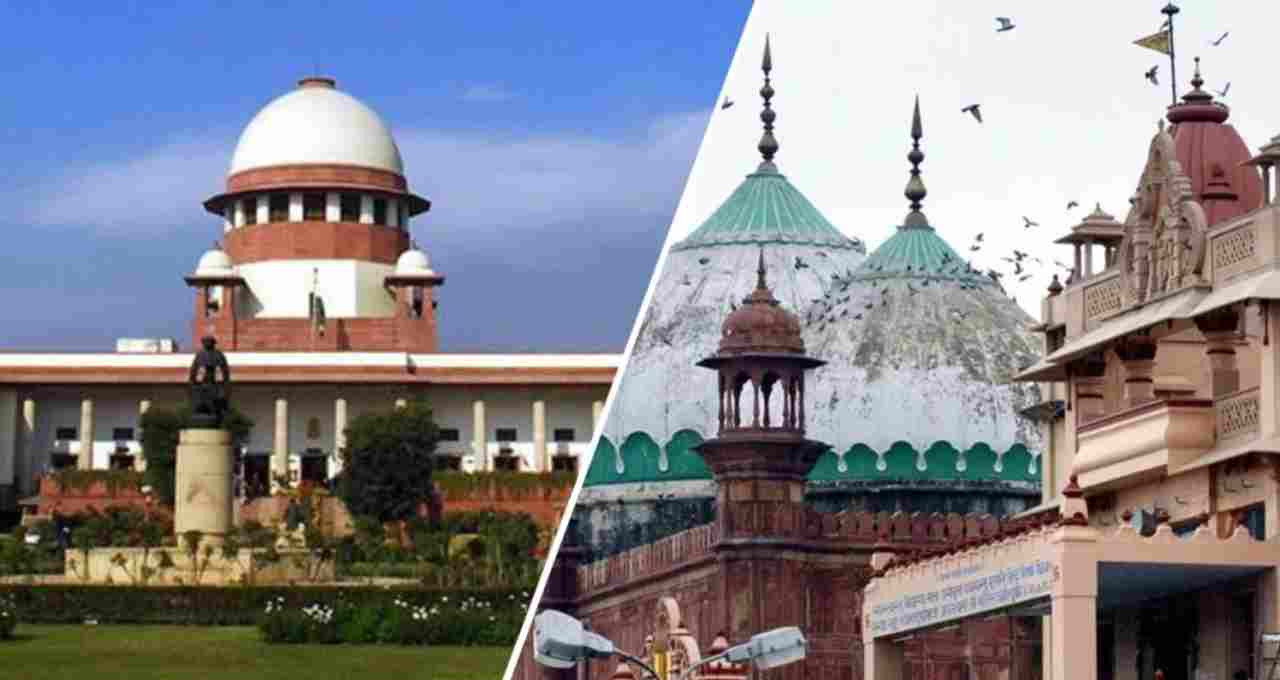
The bench hearing the case, comprising Justices Sanjeev Khanna, Sanjay Kumar, and K.V. Viswanathan, in the absence of Chief Justice D.Y. Chandrachud, clarified that the High Court's decision to consolidate the cases was balanced and logical. Advocate Tasneem Ahmadi, representing the Muslim party, argued that the case violates the spirit of the Places of Worship Act.
Conversely, Vishnu Shankar Jain, representing the Hindu party, argued that the Eidgah is a protected monument under the ASI Act and therefore not covered by the 1991 Act.
What happened in the previous hearing?
On December 12, the Supreme Court directed all lower courts not to pass any interim or final orders on temple-mosque disputes. The court also stated that no new cases challenging the conversion of temples into mosques during Islamic rule should be accepted. This includes both the Varanasi Gyanvapi case and the Mathura Shahi Eidgah dispute.
High Court's Stance
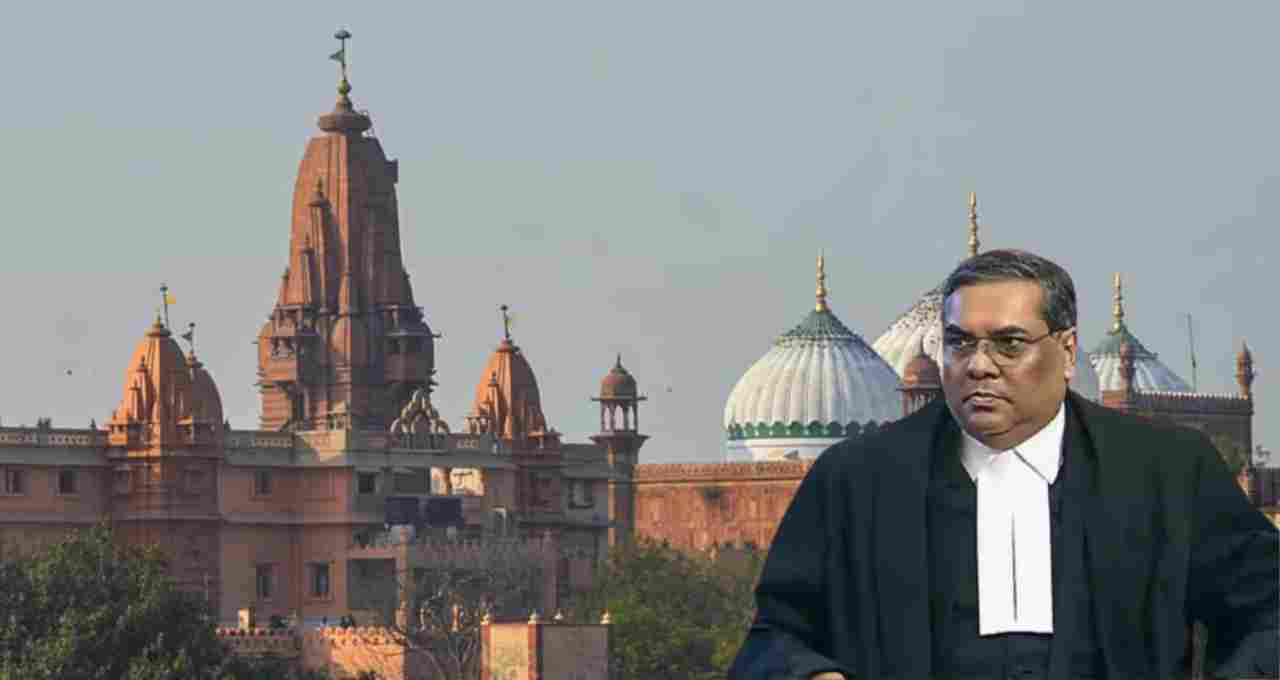
In its August 1, 2023 order, the Allahabad High Court stated that no provision of the Waqf Act, the Places of Worship Act, the Specific Relief Act, or other civil laws could prevent these cases. On October 23, the High Court dismissed the Muslim party's petition seeking separate hearings for the cases.
The central issue in this entire matter is the validity of the Places of Worship Act. Some petitions seek its annulment, claiming it is against the Constitution, while others want its strict literal application. The Supreme Court has listed all related petitions together, and the next crucial hearing is scheduled for April 8.
